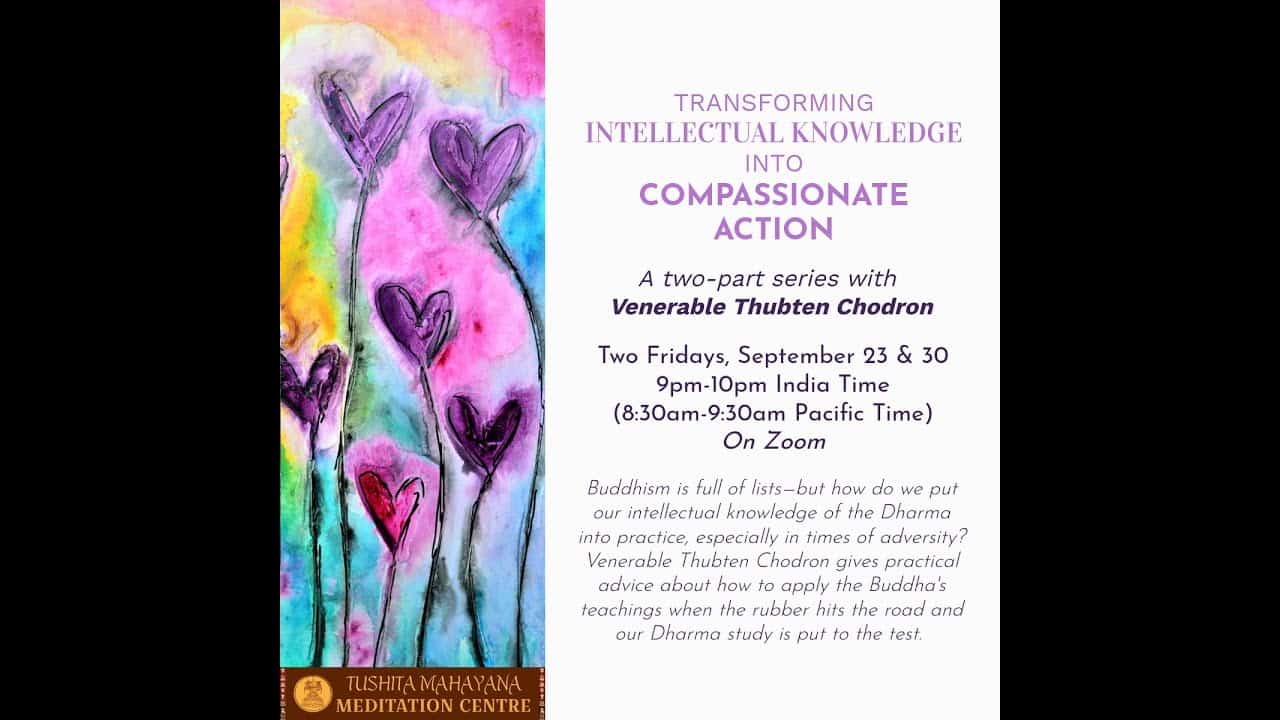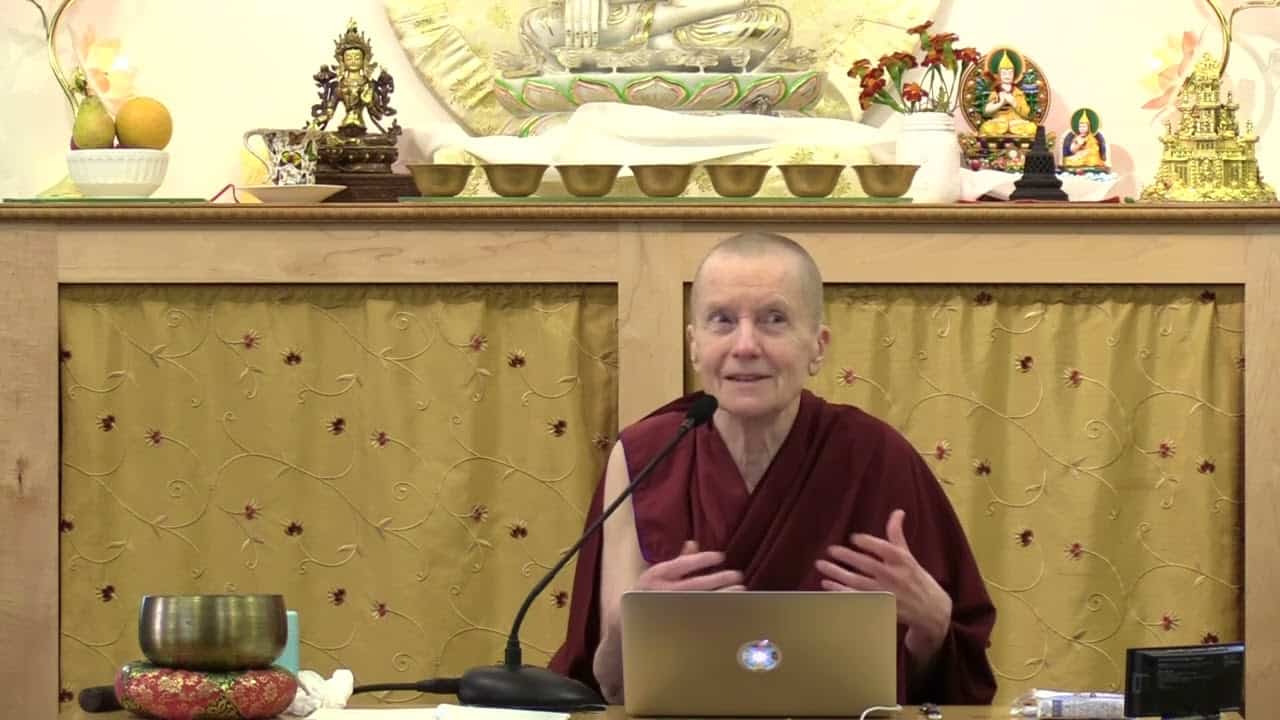Excellent qualities can be cultivated limitlessly
85 Samsara, Nirvana, and Buddha Nature
Part of an ongoing series of teachings (retreat and Friday) based on the book Samsara, Nirvana, and Buddha Nature, the third volume in The Library of Wisdom and Compassion series by His Holiness the Dalai Lama and Venerable Thubten Chodron.
- Factors making it possible to transform our mind
- Nature of the minds is a stable basis
- Excellent qualities can be built cumulatively
- Excellent qualities can be enhanced but not diminished
- Afflictive mental states and the mind
- Views of sutrayana and tantrayana
- Explanation of rigpa or the primordial clear light mind
- Difference between the nature of the minds of sentient beings and buddhas
Samsara, Nirvana, and Buddha Nature 85: Excellent Qualities Can Be Cultivated Limitlessly (download)
Contemplation points
- Review the three factors that make liberation possible (the true nature of the mind is pure, the afflictions are adventitious, and that it is possible to apply antidotes and eradicate the afflictions and obscurations). Spend some time contemplating the reasoning behind each. How do they lead us to an understanding that it is possible to attain liberation and awakening?
- Why is it that the mind is a stable basis for developing good qualities and the physical body is not?
- Explain in your own words why the factor of habituation is so important to cultivating excellent qualities to their fullest extent. How does daily practice, done over the long term, fuel this process?
- Why do wisdom and reasoning support the generation of good qualities, but act as an antidote to the negative states of mind? Spend some time with this. How does this work?
- Consider that, with effort and training, your mind can be transformed into the mind of a Buddha. This is about how causes and conditions bring about results and is the basis for karma. Take some time to really think about this. Now reflect on the effort/training you are already making to transform your mind into the mind of a Buddha. Rejoice in this. Are there any areas in your life in which you would like to devote more of your attention and energy? Resolve to do so.
- When a mind of anger is manifest, the clarity and cognizance of the primary consciousness and the mental factor of anger that pollutes it cannot be separated. Does that mean that the clear and cognizant nature of the mind is defiled at that time? How do the Sutrayana and Tantrayana views on this differ?
- If the mind of the Buddha and that of an ordinary sentient being both possess the primordially pure awareness of rigpa and thus from that perspective there is no difference between them, are we all Buddhas? Why or why not?
Venerable Thubten Chodron
Venerable Chodron emphasizes the practical application of Buddha’s teachings in our daily lives and is especially skilled at explaining them in ways easily understood and practiced by Westerners. She is well known for her warm, humorous, and lucid teachings. She was ordained as a Buddhist nun in 1977 by Kyabje Ling Rinpoche in Dharamsala, India, and in 1986 she received bhikshuni (full) ordination in Taiwan. Read her full bio.


